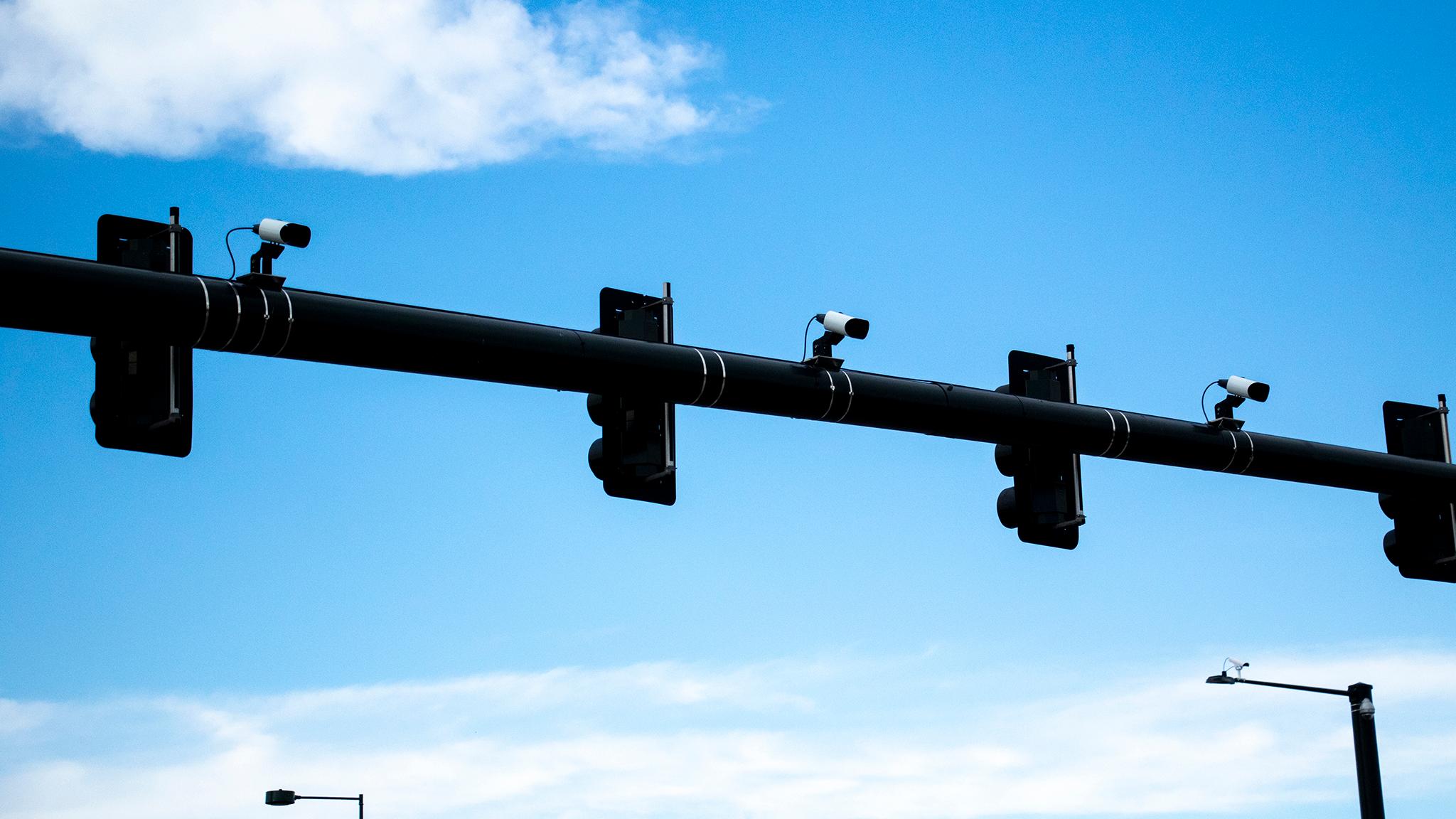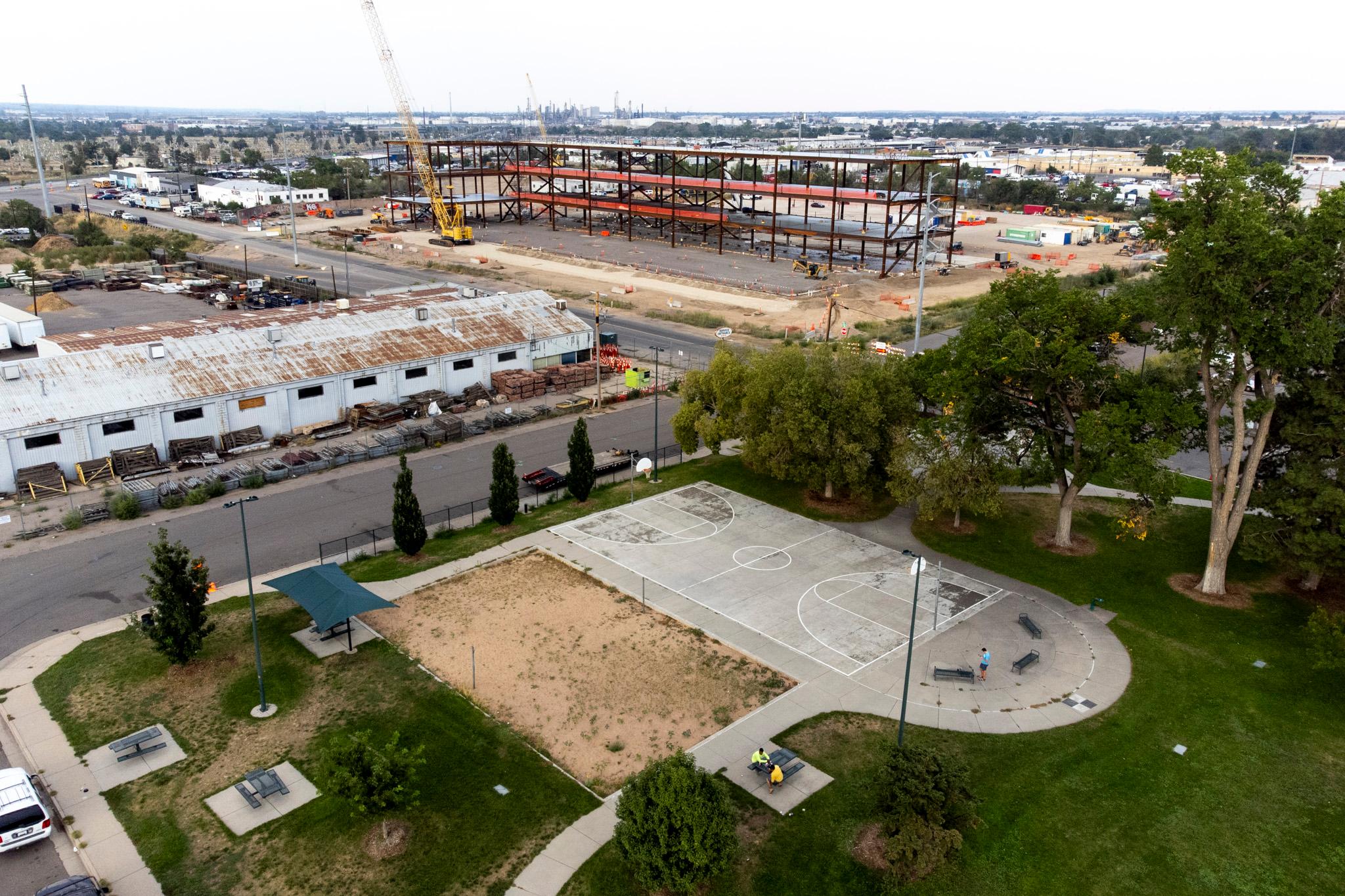Law enforcement agencies from across the nation were able to access information from Denver’s license plate surveillance cameras, including for immigration enforcement purposes.
Denver is one of hundreds of cities to use Flock Safety cameras to photograph millions of license plates and track the locations of automobiles. Most often, that information is used to track stolen vehicles and missing persons.
But in hundreds of instances, law enforcement agencies around the country have searched the national Flock network for information that appeared related to immigration cases — and until early April, those searches could have picked up license plates photographed in Denver.
Denverite found no evidence in national records that DPD’s vehicle-tracking data was used in any immigration cases. The department has not released its internal audit documenting its own searches.
But, facing pressure from elected officials, the Denver Police Department deactivated the “national search” function of its Flock technology in April.
The Denver City Council recently voted not to renew the city’s contract with Flock. Members have raised concerns about data privacy and federal immigration enforcement, but the cameras will stay operational for at least a few more months, and Mayor Mike Johnston’s office is still interested in keeping the technology.
“While we appreciate – and in many cases agree with – new concerns raised since the inauguration of President Trump, we have seen no evidence that data gathered by DPD is being used for anything other than addressing crimes committed in our city,” Mayor Mike Johnston’s spokesperson Jon Ewing wrote Denverite. “We will continue to work with DPD and with Council to ensure this remains the case and will explore additional safeguards if needed.”
Denver’s Flock cameras capture about 2 million images of license plates each month.
How have other cities — and the federal government — used the tool in immigration policing?
Federal agencies have worked with local police departments around the country to access the Flock network, according to data from the Flock system obtained from an Illinois city by anonymous researchers. Homeland Security Investigations; the Federal Bureau of Investigation, the Bureau of Alcohol, Tobacco and Firearms; and Immigration and Customs Enforcement all have been involved in searches.
In Colorado, the Loveland Police Department conducted multiple Flock searches with the term “ICE” on behalf of the ATF, 9News reported. The department had given access to the Flock data to an ATF agent in connection with Tesla vandalism investigations. The ATF agent went on to use the database for ICE searches, 9News reported. The searches were connected to a “violent criminal,” the local police chief told KDVR.
Denverite did not find evidence that any Colorado law enforcement agencies searched the Flock database with “immigration” or “ICE” as a reason. But other agencies around the nation did. Searching the Flock database doesn’t require a warrant — making it a quick way for law enforcement to try to find a vehicle or its driver.
At least 333 immigration searches documented in the Illinois files were conducted while Denver was still participating in Flock's National Lookup network, which allows users to search for appearances of a license plate across the network.
The Denver Police Department presented the Flock contract to City Council’s safety committee on April 2.
“My colleagues and I have asked our Department of Safety and Mayor’s Office for basic transparency, including for a full list of what law enforcement agencies and users have been able to search images of Denver vehicles and what they have searched for,” At-Large Councilmember Sarah Parady told Denverite.
That included the results of search logs and audits that Flock says can be used for public oversight.
“We have never seen those logs,” Parady said.
Denverite has also filed a public records request for some of the city’s Flock logs, but has not yet received a response.
Leading up to a vote of the full council on the contract extension, the Denver Police Department assured council members that agencies working on immigration enforcement did not have access to Denver data, Parady said.
“In the months since we voted the contract down and continued to await answers from the administration, we have learned through the work of journalists and researchers that this was not true,” Parady said.
Around 3,500 agencies had access to the data. Some of those departments were searching the database for “immigration” and “ICE.”
“At the time of the presentation to the Council committee on April 2nd, the DPD presenter was unaware that DPD’s data could be cross-referenced through license plate searches submitted through the Nationwide Lookup tool,” explained DPD spokesperson Doug Schepman. “This misunderstanding was due primarily to the fact that over the first year of Denver’s Flock program, he was only aware of DPD searches for license plates returning matches from other Metro-area or Colorado Flock datasets (which makes sense statistically).”
Denver changed how it uses Flock
The Denver Police Department confirmed it turned off the National Lookup functionality on April 8, days after Denver City Council members grilled the department about whether the data could be used in immigration enforcement and how the data was shared.
Critics of the city’s use of the Flock network have raised concerns about mass surveillance and how it could be used for federal immigration enforcement. The ACLU has described Flock’s services as “Orwellian.”
Denver continues to have data-sharing agreements with other agencies in Colorado. State law limits those agencies’ ability to use the data for immigration purposes, though some jurisdictions, including El Paso County, maintain partnerships with ICE.
“I am begging the Department of Safety and the Mayor’s Office to share the full search logs and lists of usernames with council,” Parady said.
She and fellow council members have “dozens of other technical questions” about topics like how hotlists work and how Denver explicitly informs other jurisdictions that they need to follow the city’s search policies.
“I am dreading the day we see a longtime resident with a valid immigration claim and no criminal background swept up by ICE because we didn’t protect our city from being surveilled,” Parady said.
Denver’s mayor says Flock is working
The mayor has supported the implementation of Flock, citing it as a major reason Denver has seen a drop in auto theft. Around two-thirds of police departments in cities of Denver’s size use the technology.
“We can advance public safety while also protecting immigrants and the right to privacy,” Ewing wrote.
Unlike other license plate reader companies, Flock audits each department’s use of the cameras.
“License plate readers have proven to be a critical tool in everything from significantly reducing auto theft to arresting alleged killers,” Ewing wrote.
One of Flock’s main functions is to search for cars on “hotlists,” notifying local police whenever the system spots a wanted car. The system can check for vehicles sought in immigration cases, but Denver has opted not to receive those immigration-related alerts.
The city council will again consider whether to renew a $666,000 contract extension with the company later this year. Denver currently has more than 100 cameras set up throughout the city.
For now, the mayor, city council members and DPD are discussing how to ensure the use of the technology conforms to city law. And Flock itself is working on new technologies to give local agencies more control, a spokesperson said.
Some states, including California and Virginia, have laws prohibiting license plate data from being shared outside state lines. Colorado has no such law.













